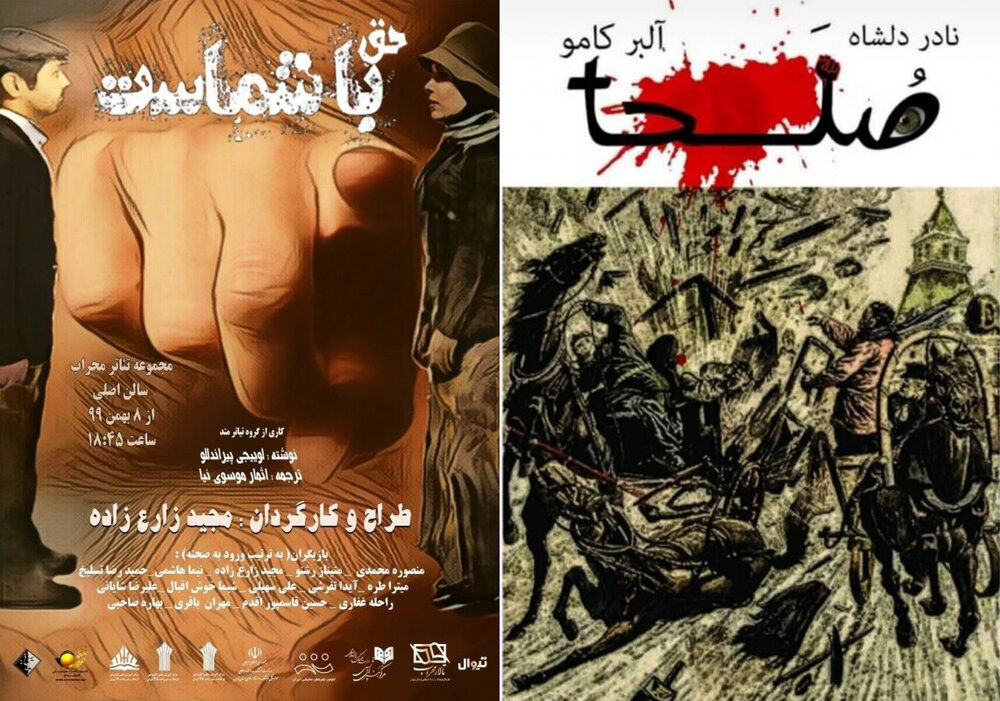Plays by Luigi Pirandello, Albert Camus hit stages at Tehran theaters

TEHRAN –(Iranart)- Plays by Italian dramatist Luigi Pirandello and French writer Albert Camus have gone on the stages of theaters in Tehran.
Pirandello’s “Right You Are”, also known as “If You Think You Are” directed by Majid Zarezadeh is on stage at the Mehrab Theater.
Asmar Musavinia is the translator of the play produced in three acts in Italian in 1917 as “Così è se vi pare” and published the following year.
This work, like almost all of Pirandello’s plays, contrasts art and life, demonstrating that truth is subjective and relative.
No one has ever seen Signor Ponza’s wife and her mother, Signora Frola, together. Councilor Agazzi, Ponza’s employer, investigates Ponza’s private life. Ponza claims that his wife is really his second wife, the first having died in an earthquake that destroyed all verifying documents. Likewise, his wife only pretends to be Signora Frola’s daughter to humor Signora Frola, who, he claims, is insane. Thoroughly bewildered, Agazzi demands to meet Ponza’s wife, who arrives, heavily veiled, proclaiming herself as both the daughter of Signora Frola and the second wife of Ponza. The “truth” of the matter remains a mystery.
Neauphle-le-Chateau Theater is playing host to theatergoers for Camus’ 1949 play “The Just Assassins”.
Mohammad Chitsazi directs the play based on a Persian translation by Khashayar Deihimi.
In February 1905 in Moscow, a group of terrorists who were part of the revolutionary socialist party organized an attempt on the life of the Grand Duke Serge, an uncle of the Tsar. This attempt, and the unusual circumstances leading up to and following it, is the subject of “The Just Assassins”.
“No matter how extraordinary some of the situations in this play may seem, they are the truth. This is not to say that ‘The Just Assassins’ is a historical play, but all the characters actually did exist, and behaved as I have written. I only tried to make realistic the things which really happened” Camus wrote about the play.
“I kept the real name of the hero, Kaliayev. I didn’t do this from lack of imagination, but out of respect and admiration for those men and women who, in the most contemptible of efforts, were still not able to get rid of their own hearts.
“Progress has been made since then, it is true, and the hate which weighed down those exceptional souls into intolerable suffering has now become a comfortable system. But that is even more reason to bring back these great ghosts and the story of their justified revolt, their difficult brotherhood, and the unmeasurable efforts they made to put themselves in tune with murder — and thus to show where their true faith lay.”
source: Tehran Times

